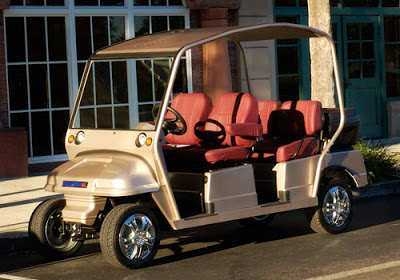Home Energy Makeover
A video from Focus on Energy and Fox 6 on cutting energy costs by adding installation and sealing air leaks in a home.
A video from Focus on Energy and Fox 6 on cutting energy costs by adding installation and sealing air leaks in a home.
From a story by Mark McPherson on WKBT, La Crosse:
Every day, Gundersen Lutheran works to help patients get better. Now through a new initiative they are working to help the enviroment as well.
Gundersen Lutheran’s Going Green program is something they say makes sense for everyone. “We can improve our enviroment and reduce the cost of our operation at the same time,” said Gundersen Lutheran Senior V.P. of Business Services Jerry Arndt. Arndt feels it’s especially important for a hospital to try and save energy considering how much they consume. “Hospitals use 2 1/2 times more energy than a commercial office building would for example,” said Arndt.
The program will include small changes like turning off lights and computers, but includes bigger initiatives like solar panels on the new parking ramp and using methane emissions from the City Brewery to create electricity.


The all-electric vehicles from Columbia ParCar offer one transportation
alternative to the internal combusion engine. (Photo courtesy of
Columbia ParCar, Reedsburg, WI.)
From an editorial in The Thomah Journal:
For all the attention the banking and insurance bailouts have received — and anything that involves $1 trillion of taxpayer money deserves attention — it’s only a short-term fix to what ails the American economy and American living arrangements. To solve its long-term problems, America needs a new sustainability agenda.
Unfortunately, discussions of sustainability are limited to the poor and whether it’s possible, for example, to guarantee adequate health care for everyone. That’s a very narrow definition. We need a broader view of sustainability that examines:
* Mobility. Exurban lifestyles in which people live in big houses and drive big automobiles to jobs located 30, 40 or 50 miles away impose a huge cost on the economy and environment. We need an agenda of sustainable neighborhoods that require us to drive fewer miles — or not at all — to meet basic needs.
* Energy. It’s unclear how much oil lies beneath the earth’s surface, but this much is beyond dispute: oil is a finite resource, and it will run out some day. It’s not too early to invest in clean, renewable energy sources and develop an alternative to the internal combustion engine. . . .
A nation that can massively subsidize exurban sprawl, non-renewable energy, corporate farms and pre-emptive war is capable of sustaining a sturdy safety net for our sickest, poorest and most vulnerable citizens. It’s just a matter of leaders adopting a new vision of what’s sustainable and what needs to change.
From an article by Dustin Block in The Daily Reporter:
Ken Lumpkin cautions against poor timing as Racine closes in on building an environmentally sound housing development in one of the city’s poorest neighborhoods.
“The whole area needs to be cleared out, new sod put down, and the lot should be utilized as a park until the economy makes a turnaround,” said Lumpkin, a member of the Redevelopment Authority of the City of Racine, about the site of a former homeless shelter torn down earlier this year to make room for development.
“It’s a fragile area directly across the street from an elementary school,” he said. . . .
The city hired Pragmatic Construction LLC, Milwaukee, for preliminary work on the site, and the city is reviewing the results, O’Connell said. He said he wants to give a report to the Redevelopment Authority of the City of Racine, which is in charge of the project, by November.
The challenge for developers of the green housing project is to build affordable new homes in a neighborhood with deteriorating housing stock, said Juli Kaufmann, co-owner of Pragmatic. Homes surrounding the property are valued at about $50,000, according to Racine County property tax data.
But the green, high-efficiency homes Pragmatic specializes in could be the perfect fit for a low-income neighborhood, Kaufmann said. With lower heating and gas bills, the homes would be cheap to run, and they’re built from durable materials that eliminate the need to paint or repair exteriors.
“We certainly think about that, and our clients talk about that,” Kaufmann said. “It’s on the table. The objective would be to figure out how to build reasonably affordable homes with homes across the street selling for $50,000. It’s impossible to build any size home at that price today.”
The city likely would support construction of a spec home on the site and then recruit builders to take on a certain number of lots on the property, O’Connell said. The property could support roughly 10 homes, and could possibly include multifamily homes.
O’Connell said building green homes keeps to the city’s commitment to environmentally responsible construction and cutting greenhouse gas emissions.
From a story by Kelly Schlicht on WEAU News:
There’s a lot of buzz about converting old light fixtures and other appliances to new, energy efficient ones, and if the City Council approves a measure at Tuesday’s meeting [Sept. 23], the city of Eau Claire could be joining that trend.
18 different stoplights around the city have yet to be changed over to more efficient LED light bulbs, which will save the city money and help save the environment.
But changing a light bulb is just the beginning of the proposed upgrades.
Change is also in the air for this old ventilation system at the Eau Claire city garage, as the city looks to replace it with a new, more efficient model.
“We can run the system intermittently, instead of consistently, which reduces our energy costs, says Eau Claire Public Works Director Brian Amundson.